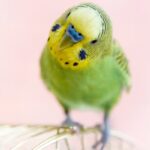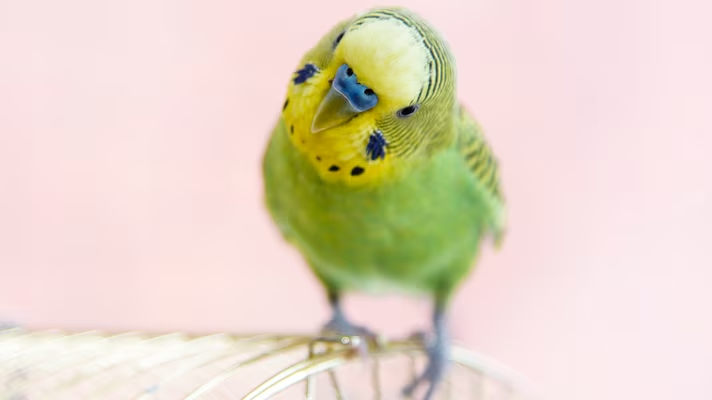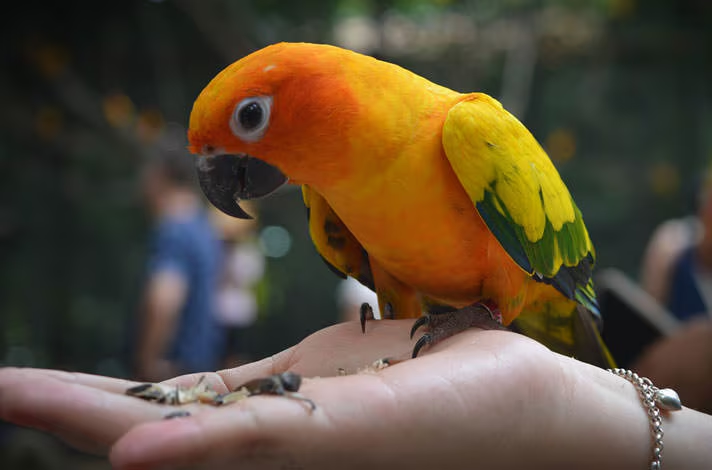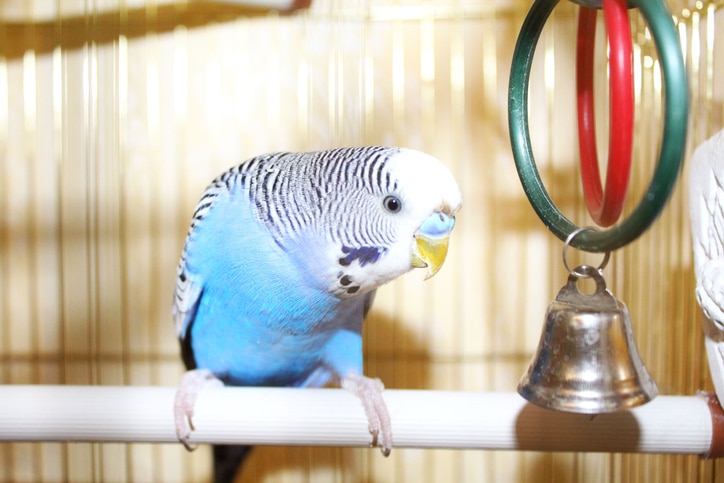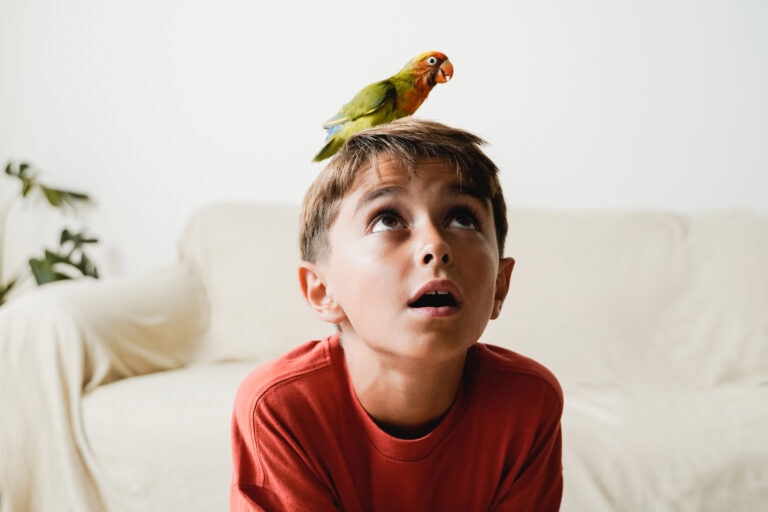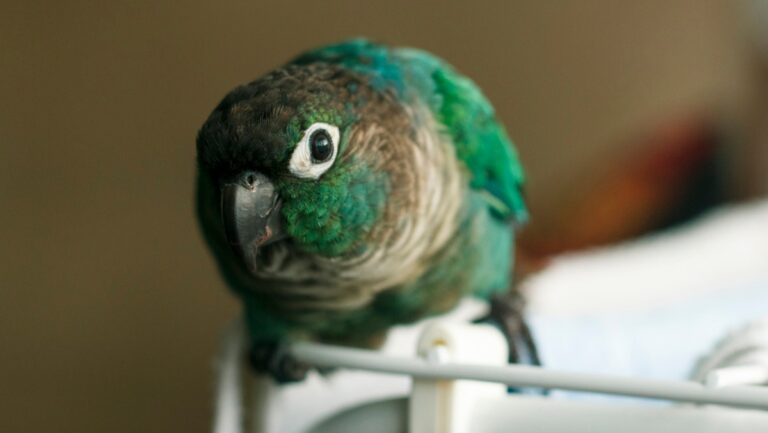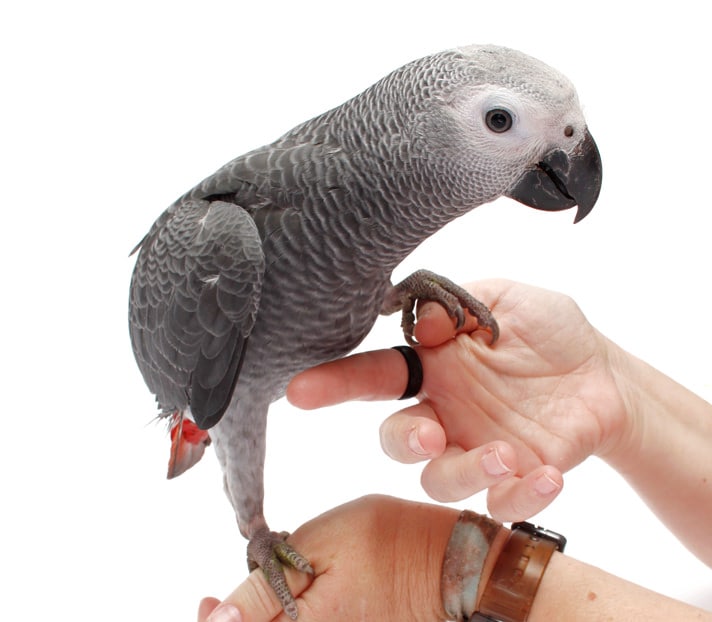Stop The Squawk
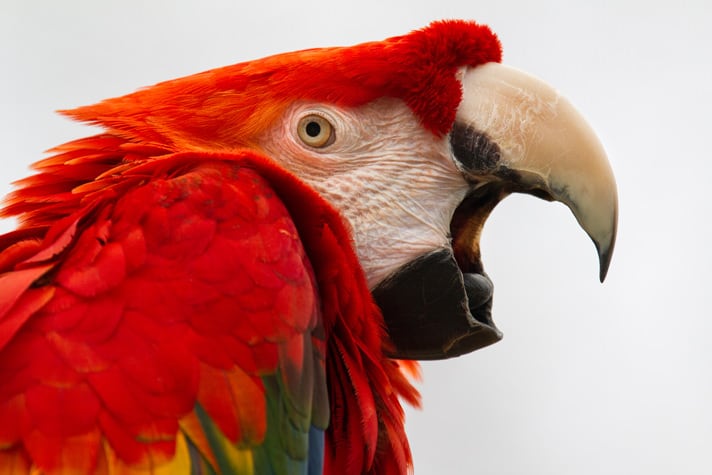
Photo by A scarlet mcaw opening his strong beak.
No one likes it when a bird screams bloody murder, but some noise is unavoidable. Fortunately, there are steps you can take to stop the squawk.
Ways To Prevent Screaming In Pet Birds
1. Expect a fair amount of noise on a regular basis.
Certain species are definitely louder than others. Amazons, cockatoos and Aratinga conures, such as sun conures or jenday conures, are known to blast eardrums just to express the sheer joy of being alive. Budgies chatter and cockatiels whistle. Even my Pionus, Ariel, is capable of quite respectable volume.
2. Make sure your pet bird is safe and well.
If you hear a call that sounds different — that sounds like an alarm call — it’s better to be safe than sorry and make sure your bird is OK. Of course, some birds have a way of making that alarm call if, for example, “somebody” has loaded their water dish with soggy pellets or eaten the last grape. By being observant and noting the types of calls your bird makes on different occasions, you will know when your bird really needs you.
3. Make sure your bird knows how to play on its own.
It seems odd, but many birds are not born knowing how to play with bird toys. They can learn on their own, in time, or by watching other birds play. You also can let your bird watch you enjoy a toy to give it an idea of how much fun it can be. If your pet has a variety of entertaining bird toys that you rotate frequently, it will have less time to fret about missing you.
4. Greet your bird when you come home.
Chances are, your pet bird has been waiting for you while you were out and is eager to see you. If you wander off to read your mail or start preparing dinner without taking a moment to say “hello,” your bird is likely to react with righteous indignation. Establish a routine of greeting your bird, even briefly, soon after you walk in the door.
5. Take your bird with you when you can.
It might not always be practical or safe to have your bird with you; for example, a kitchen with a lit stove isn’t the safest place for your bird to spend its time. On the other hand, you can avoid a lot of problem screaming by keeping bird perches for your bird to use in other rooms, even if you are just folding laundry or reading a book. After all, isn’t it flattering that your bird demands your company so enthusiastically?
6. Call to your bird frequently when you are around the house.
If you can get in the habit of calling to your bird before it thinks to call you, you can nip in the bud a lot of problem screaming.
7. Establish an acceptable contact call.
If your bird talks, you can encourage it to call “Hello” or “Whatcha doin?” rather than shake the windows with a scream. Birds that aren’t big talkers also can be taught to use more acceptable sounds to communicate. For example, Ariel is fond of a certain lip-smacking kiss sound, and many birds can produce a good wolf whistle. Call to your bird frequently with the preferred contact call, and it is likely to start using it as well.
8. Reward use of the contact call.
Respond to the more acceptable contact call by returning the call, answering in your own words or poking your head briefly into the bird? room if you can. Be consistent and generous in your response if you would like your bird to learn quickly that this contact call, rather than a scream, is going to produce the best results.
9. Use a cue when you leave the room for a short time.
If you are consistent about saying “Be right back!” each time you briefly leave the room, your bird will quickly learn that you will reappear soon and not to worry. Use a different cue such as “Be a good bird today!” when you head off to work.
10. Expect a negative habit to take as much time to undo then it did to become established in the first place.
If you have spent the last six months effectively teaching your bird that you will appear when it screams, your parrot will not immediately stop the screaming in response to your efforts. Unfortunately, your bird is likely to spend a period of time screaming louder and more often than before.
Don't Do This
1. Don't yell or punish your bird for screaming.
Responding angrily, banging on the cage bars and other negative responses will not only fail to correct a screaming problem, they also will damage the trust your bird has in you and in other members of the human race.
2. Don't respond in a way your bird won't understand.
If you put your bird in a timeout or cover its bird cages, it won? be likely to associate this action as a consequence to screaming, although it might actually be momentarily gratified each time you reappear to move it or cover it up.
3. Don't reward screams.
Whenever you call or reappear in response to a scream, you are teaching your bird that screaming gets the results it wants.
4. Don't give up.
If you think the screaming will get worse (and it will, for a period of time) and decide to go back to rewarding screaming as you did before, the screaming habit will be more firmly entrenched than ever. Stay focused on the goal in order to get through this difficult period, and ultimately both you and your pet bird will be happier for it.
Want to learn more about bird noise? Check out these articles:
By: Chewy Editorial
